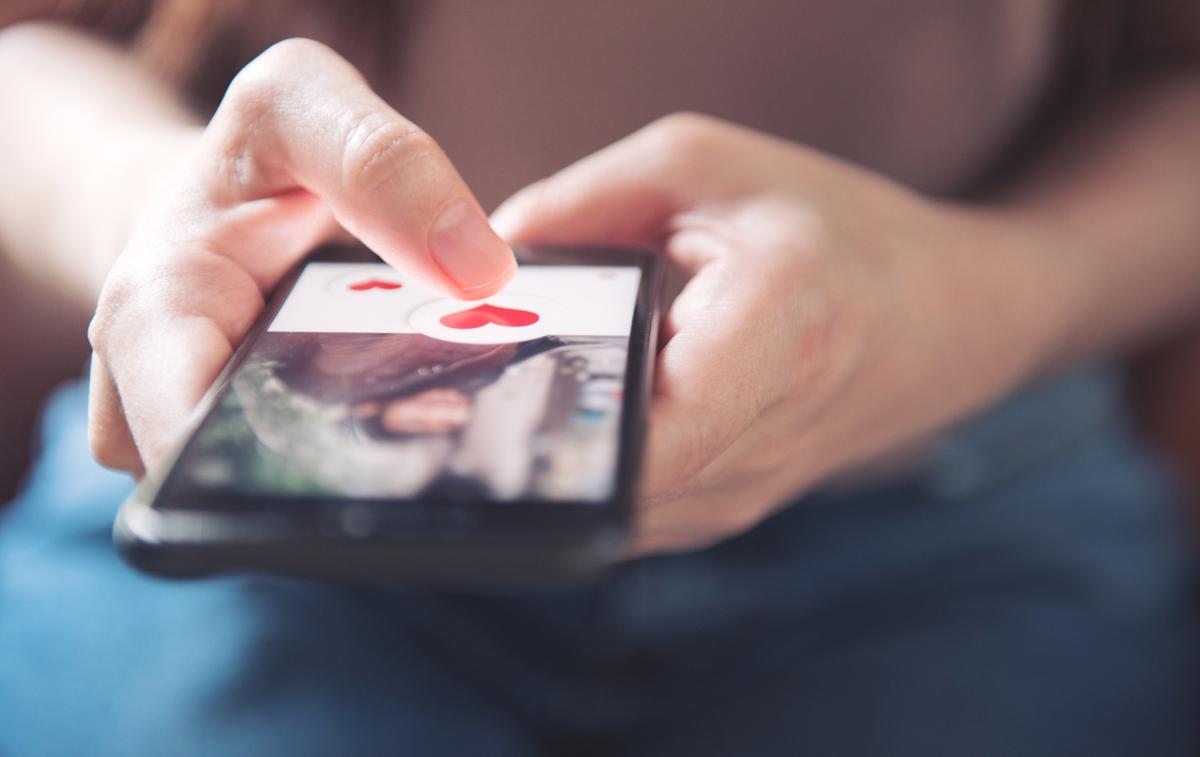“Tinder and a Club Med Gym registration, all on the same day: the perfect post-breakup package.”
In 2014, journalist Judith Duportail, 32 years old today, discovered the dating application Tinder.
Excited from the start, she finds a way to boost her self-esteem.
870 exchanges later, she is disillusioned.
If Tinder facilitates making contact, it erases any chance and spontaneity in the search for love.
In his book
Love under Algorithm
, published on March 21, 2019 by Goutte d'Or editions, the young woman tries to understand the functioning of this company, responsible according to her for a real "sexual capitalism".
A fascinating investigation adapted into a documentary by the production company Federation Entertainment and directed by Jérôme Clément-Wilz, to be discovered on Wednesday January 19 at 11 p.m. on the
Infrarouge program
on France 2.
Read also »
Tinder, Happn … "It's as easy to have a sexual partner delivered as a pizza"
In video, the signs that prove that you are in love
Rating of "desirability"
In her book Love under Algorithm
,
Judith Duportail tries to understand the workings of Tinder.
The Golden Drop
On Tinder, it's "a 'mug' supermarket", assures Judith Duportail in her book. At the end of 2015, the application claimed 60 million subscribers. Small reminder for laymen: if a profile interests us, we slide the thumb (
swipe
in English) to the right. When the feeling (or the appetite) is mutual, we get a
match
and we can start chatting. Conversely, a
swipe
to the left and we leave the person on the shelf for the others. In France, 45 million
swipes
are made every day. But how does Tinder classify the different profiles that appear on the screen? According to the company, only recent activity, age/gender preferences and geolocation come into play.
Yes, but... Judith Duportail emphasizes that this system is not as random. Starting with the creation of a so-called “desirability” rating. Developed secretly by Tinder, this rating determines the position of each user in the list of suitors. In 2016, the American journalist Austin Carr revealed this information to the press after a dinner with the co-founder of Tinder, Sean Rad. The latter boasted squarely of having a score well above the average. In 2017, Judith Duportail sought to know hers, under European data protection law. Tinder's response: no note disclosed but the sending of an 802-page document with all of his personal data (curriculum vitae, content of messages, time and place of connection,Facebook and Instagram data) collected by the app.
Depending on our interactions, this rating may increase or decrease.
Thus, going to the top of the class will earn us points while a dunce will make us lose them.
Originally, this reasoning, called "Elo Score", was used in chess and video game competitions.
Visibly cornered by the book's revelations, Tinder announced in a press release, posted on its blog on March 15, 2019, that it had abandoned this bonus/malus system, claiming that it was obsolete.
A system that totally distorts the meeting
The algorithm favors matching older men with young, less wealthy and educated women
"Our current system adjusts the potential matches you see each time your profile is swiped left or right, and any changes to the order of potential matches shown to you are made within 24 hours," Tinder said. in his statement. A way to sweeten reality. Contacted by a researcher in digital humanity, Judith Duportail discovers that the company has patented a system making it possible to identify the intelligence, interests, physique or even ethnicity of users by scanning their biography, their photos and even the content of private messages. All this with the aim of finding points in common to promote the meeting and “give rise to a belief in destiny”, according to the journalist. So we can
match
with someone because we have the same initials, the same eye color...
Worse still, we discover that this patent, named US 2018/0150205A1 and available for free access on Google Patents, would be based on “a patriarchal model of heterosexual relations”.
Thus, the algorithm favors the linking of “older men with young, less wealthy and educated women” but not the reverse.
In this way, older women and young men are disadvantaged.
To justify itself, the patent explains that “empirical observations show that these demographic differences do not have the same effect on the choices made by men and women when it comes to dating”.
Questioned by the journalist, Julie Sacco, one of the spokespersons for Match Group, the parent company of Tinder, totally denies the facts.
"You have provided us with a misleading interpretation of these patents, the Tinder matching system, and the application of the patent to the platform," she wrote to him by email.
"Love under an algorithm is a game whose rules we don't know", concludes Judith Duportail.
Tinder and the others
During her investigation, the author fed her work with various expert testimonies. Among them, an enlightening opinion from Paul-Olivier Dehaye, a Swiss mathematician. Little shocked by the methods of the application, this specialist in
micro-targeting
denounces an increasingly opaque society. “Your personal data is used to give you a rating on Tinder, yes, he replies to Judith. But they also decide which jobs you have access to on LinkedIn, how much you'll pay to insure your car, whether you can take out a loan, and tomorrow what advertising you'll see on the subway. In the end, your whole existence will be turned upside down, predetermined by all the data collected about you. Welcome to
Black Mirror
.
*Originally published on March 22, 2019, this article has been updated.
The editorial staff advises you
Where is the seduction since the #MeToo earthquake?
Ten tips for seducing without Tinder
Why do some people tire quickly in love?








